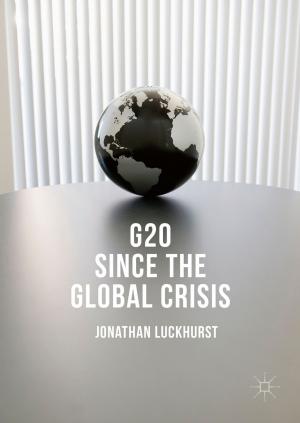Policing New Risks in Modern European History
Nonfiction, History, European General, Modern, 20th Century| Author: | ISBN: | 9781137544032 | |
| Publisher: | Palgrave Macmillan | Publication: | December 16, 2015 |
| Imprint: | Palgrave Pivot | Language: | English |
| Author: | |
| ISBN: | 9781137544032 |
| Publisher: | Palgrave Macmillan |
| Publication: | December 16, 2015 |
| Imprint: | Palgrave Pivot |
| Language: | English |
Authorities often fear societal change as it implies finding a new balance to live together within society. Whether it is defined by economic, political, social or cultural factors, the transformation of life in society is considered by authorities as a 'risk' that needs to be framed and controlled. The state's response to this situation of transformation can be analysed through the prism of the police. Informally or not, police systems adapt their regulatory frameworks, their structures and their practices in order to respond risks, new threats and new rules. This process, which is mostly of a contemporary nature, is also deeply historic. Analysing it on the long run is therefore particularly relevant. From the late nineteenth-century until the second half of the twentieth-century, Policing New Risks in Modern European History provides a panorama of political and police reactions to the 'risks' of societal change in a Western European perspective, focusing on Belgium, France, and The Netherlands, but also colonial perspectives.
Authorities often fear societal change as it implies finding a new balance to live together within society. Whether it is defined by economic, political, social or cultural factors, the transformation of life in society is considered by authorities as a 'risk' that needs to be framed and controlled. The state's response to this situation of transformation can be analysed through the prism of the police. Informally or not, police systems adapt their regulatory frameworks, their structures and their practices in order to respond risks, new threats and new rules. This process, which is mostly of a contemporary nature, is also deeply historic. Analysing it on the long run is therefore particularly relevant. From the late nineteenth-century until the second half of the twentieth-century, Policing New Risks in Modern European History provides a panorama of political and police reactions to the 'risks' of societal change in a Western European perspective, focusing on Belgium, France, and The Netherlands, but also colonial perspectives.















